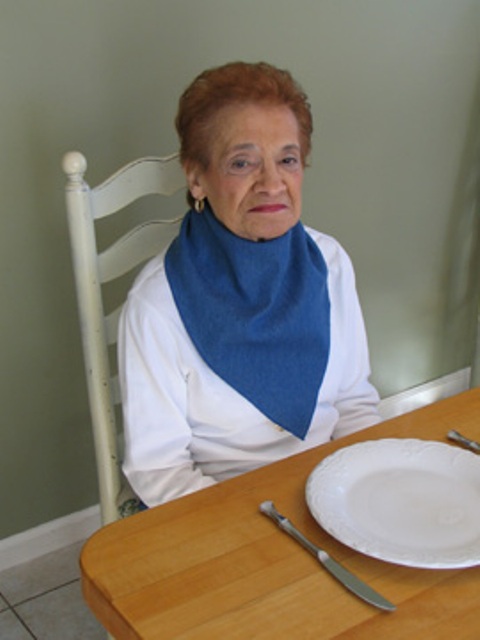- Providing Helpful Healthcare Products Since 1999 | Our Hours: 8 AM - 5 PM CST Mon - Fri
- +1-877-750-0376
Fully Independent Mealtimes (With a Little Help)
In the Kitchen
August 22, 2011Top 4 Assistive Products for Mealtimes
August 23, 2011
Your patient, spouse, or parent has difficulties with self-feeding because of arthritis, stroke, or other ailments. They enjoy mealtimes considerably more when they can do it independently. You would like to help. How can you do this?
The fact is, folks who cannot manage mealtimes independently need help to help themselves. Ordinary tableware, plates, mugs, glasses, and most dining implements are not appropriate for people who have such difficulties. As a caregiver, the best way you can help is to give these people the proper tools so that they can dine independently.
A Bib Means Self-Feeding Freedom
Of all the assistive dining implements, the bib is often the most difficult one to present to the patient. After all, many people view
dining bibs as necessary only for the neediest people–the ones who are least able to take care of themselves.
The flaw in this argument is that many folks who need bibs actually prefer bibs. Bibs allow the person to feed him or herself without fear of dropping food and soiling their clothing. This grants them freedom to:
- Try new types of food.
- Enjoy “staining” food that they might ordinarily avoid–berries, dark juices, marinara sauces, etc.
- Attempt more self-feeding, rather than falling back on the “safety net” of a caregiver.
- Take larger bites.
Adaptive Plates and Bowls for Sure Control
Assistive dinnerware is often welcomed with open arms by people weary of food not remaining on their plates or of spoons and forks that don’t stay put. Assistive dinnerware consists of so many helpful types of adapted plates, forks, bowls, and mugs that we will give you a breakdown here:
Scoopers are plates that have rims or narrow lips along the edges that allow people to push food onto forks or spoons without fear of the food falling off the edge.
For people tired of eating mixed-up food, partitioned plates typically offer three large partitions within the same plate to keep food separate.
It’s not just the food that has a tendency to move around; the plates, too, can slide. Non-skid dinnerware consists either of specially adapted plates and bowls with suction bases or regular dinnerware atop a non-skid pad.
Better Control with Liquids
Liquids, especially hot liquids like tea, coffee, or cocoa, are an area of special concern to people who have difficulties dining independently. Spilling liquids almost always results in a huge mess. In the case of hot liquids, serious injury can result.
Assistive beverage implements include cup-holders that attach bedside or to the wheelchair, extra-long reusable straws, and straw holders to keep the straw firmly vertical and in one spot.
